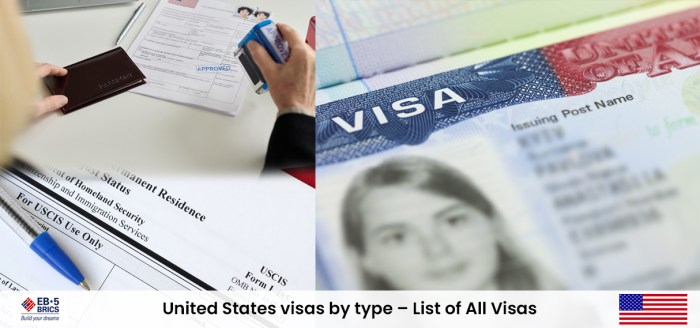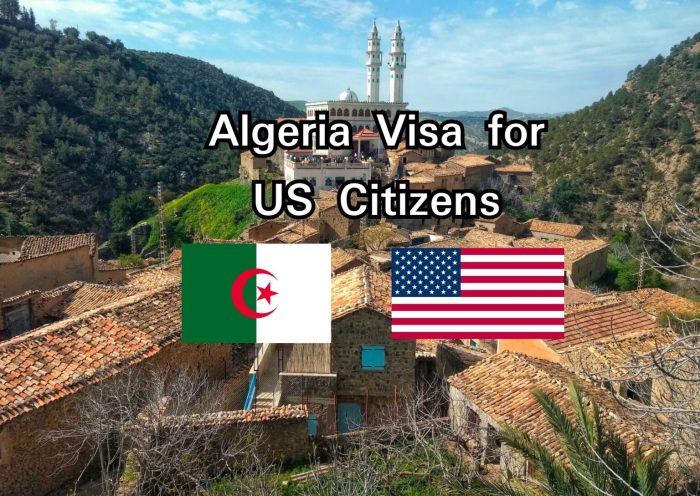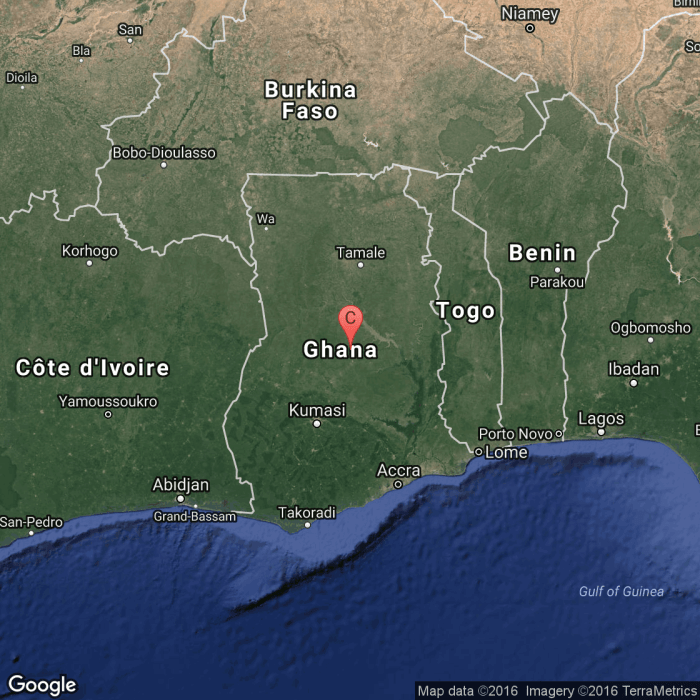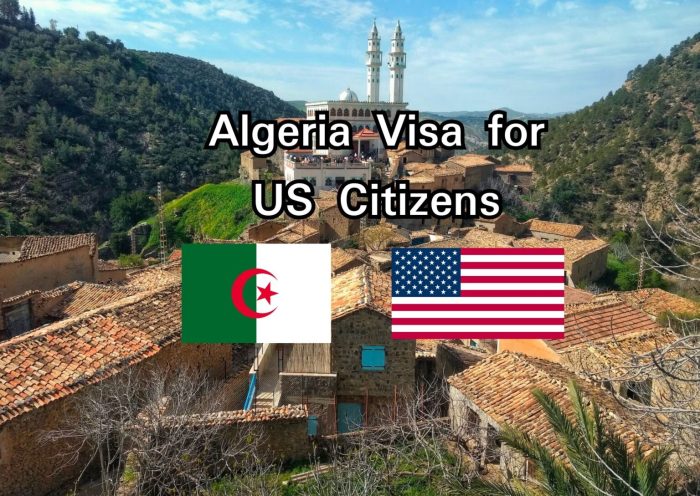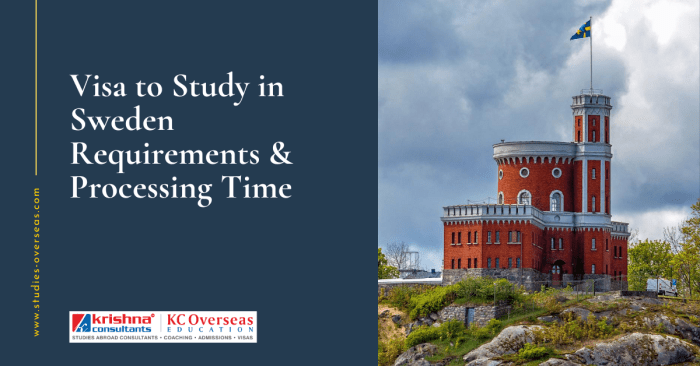Visa requirements for Maldives are crucial for planning your trip. This comprehensive guide will walk you through everything you need to know, from the various visa types to the necessary documents and application process. Whether you’re dreaming of sun-drenched beaches or exploring vibrant culture, understanding the visa regulations is essential for a smooth and hassle-free journey to this beautiful island nation.
We’ll cover everything from the different types of visas available – tourism, work, and more – to the specific documents required, like passport validity and photo specifications. You’ll also learn about visa fees, processing times, and the steps involved in applying for a visa, either online or in person. This resource will equip you with the knowledge to navigate the process with confidence and ensure a seamless arrival in the Maldives.
Visa Requirements Overview
The Maldives, a breathtaking archipelago in the Indian Ocean, welcomes visitors from around the world. Navigating the visa requirements is crucial for a smooth and enjoyable trip. This section provides a comprehensive overview of visa policies, outlining the different types available and the process for obtaining them.
Visa Types and Eligibility Criteria
The Maldives offers various visa options catering to different travel purposes. Understanding the nuances of each visa type is essential for ensuring a compliant stay. Tourist visas are the most common, ideal for leisure activities. Other visa types cater to specific needs, including work, business, and medical purposes.
- Tourist Visa: This visa is designed for travelers seeking to explore the stunning beaches, vibrant culture, and underwater wonders of the Maldives. Eligibility criteria usually include a valid passport with a minimum validity period of six months beyond the intended stay, return flight tickets, and proof of sufficient funds to cover expenses during the stay.
- Work Visa: A work visa is required for individuals seeking employment in the Maldives. The eligibility criteria vary based on the specific job and employer. Typically, employers need to apply for a work permit on behalf of the employee, which is then linked to the work visa. Thorough documentation and compliance with Maldivian labor laws are essential.
- Business Visa: This visa type is intended for individuals visiting the Maldives for business-related activities, such as attending conferences, meetings, or conducting negotiations. Proof of business purpose, such as invitations or scheduled meetings, is often required. Similar to a work visa, the employer or company often needs to initiate the visa application process.
- Medical Visa: A medical visa allows individuals to travel to the Maldives for medical treatment. Eligibility depends on the specific medical facility and the nature of the treatment. Medical records, physician referrals, and proof of accommodation arrangements are typically required.
Visa Comparison Table
This table summarizes the key characteristics of different visa types.
| Visa Type | Duration | Application Procedure | Eligibility Criteria |
|---|---|---|---|
| Tourist Visa | Typically 30 days (extendable in some cases) | Can often be obtained on arrival, or in advance through designated agents | Valid passport, return flight tickets, sufficient funds |
| Work Visa | Dependent on employment contract | Employer initiates the application process, typically through the Ministry of Foreign Affairs | Specific job requirements, employment contract, valid work permit |
| Business Visa | Typically 30 days (extendable in some cases) | Usually obtained in advance through designated agents or embassies | Invitation letters, business schedule, valid passport |
| Medical Visa | Dependent on the length of treatment | Requires pre-approval from the relevant medical facility and immigration authorities | Medical records, physician referral, treatment plan |
Required Documents
Planning your Maldives adventure? Before you pack your bags, understanding the necessary visa documents is crucial. This section details the essential paperwork needed for a smooth application process. The requirements are designed to ensure a secure and orderly entry into the country.The Maldives visa application process requires careful attention to detail. Submitting accurate and complete documents is vital for a swift and successful application.
Each document plays a specific role in verifying your identity and travel intentions. It’s essential to adhere to all specifications, including format and content, to avoid delays or rejection.
Passport Requirements
A valid passport is fundamental for any international travel. The passport must be valid for at least six months beyond your intended stay in the Maldives. This ensures you can depart the country even if your planned trip extends slightly. Also, ensure your passport has at least two blank pages for visa stamping.
A passport that is not valid for at least six months beyond your intended stay in the Maldives will likely be rejected.
Visa Application Form
The visa application form should be accurately completed and signed. All required information, including your full name, date of birth, nationality, and travel dates, must be precisely recorded. Incomplete or inaccurate forms may lead to delays or rejection.
Ensure all information on the visa application form is accurate and complete.
Proof of Accommodation
Providing proof of accommodation is necessary to demonstrate your travel plans and arrangements. This can include hotel bookings, or other verified forms of accommodation. This evidence is used to verify that you have a place to stay during your stay in the Maldives.
Proof of Funds
Proof of sufficient financial resources is vital to demonstrate your ability to support yourself during your stay. Acceptable forms include bank statements, showing sufficient funds in your account. The amount required may vary depending on the type of visa you are applying for.
Photographs
High-quality photographs are necessary for visa applications. The photos must meet specific requirements. These include size, format, and background color. A professional photo studio will ensure the photo meets all requirements. Ensure the photograph is a recent, clear, and color image, taken within the last six months.
Other Necessary Documents
Other documents might be required based on the specific circumstances of your travel, such as a round-trip ticket or proof of travel insurance. The need for these documents varies. Always check with the relevant authorities for any additional requirements.
| Document | Purpose | Acceptable Format | Examples of Acceptable Documents | Examples of Unacceptable Documents |
|---|---|---|---|---|
| Passport | Proof of identity and nationality | Valid passport with at least two blank pages | A passport that is valid for six months beyond the intended stay | Passport with expired validity |
| Visa Application Form | Formal application details | Printed, completed, and signed form | Correctly filled application form | Incomplete or illegible application form |
| Proof of Accommodation | Evidence of accommodation during stay | Hotel booking confirmation, or other accommodation booking | Verified accommodation bookings | Unverified or outdated bookings |
| Proof of Funds | Demonstrates financial capability | Bank statements, or other financial documents | Bank statements showing sufficient funds | Empty or insufficient bank statements |
| Photographs | Visual identification | Recent color photograph, specific size and background | Clear color photo, with proper size and background | Photo with poor quality, or incorrect format |
Visa Application Process
Navigating the visa application process for the Maldives can seem daunting, but with a clear understanding of the steps and available channels, it becomes significantly easier. This section details the step-by-step procedure, highlighting different application methods and relevant government resources. Understanding the differences in procedures for various visa types is crucial for a smooth application.Applying for a Maldives visa involves a structured process, varying slightly based on the type of visa and the applicant’s nationality.
This comprehensive guide will help you understand the specific requirements and procedures for each visa category.
Online Application Channels
The online application process for Maldives visas is a convenient and increasingly popular option. It streamlines the process, allowing applicants to submit applications and track their progress from the comfort of their home or office. Most importantly, it allows for quicker processing time, often leading to faster approval.
Planning a trip to the Maldives? Visa requirements can be a bit tricky, especially if you’re part of a group like a group of young widows looking for healing and support through travel, as seen in young widow group travel for grief. Fortunately, the process is generally straightforward for tourists. Just remember to check the specific requirements based on your nationality and the length of your stay.
Getting the necessary documents in order is key to a smooth trip.
- The official government website typically provides a dedicated online portal for visa applications. Look for clear instructions and online forms. Completing the form accurately and thoroughly is crucial for a smooth application.
- Applicants need to provide required documentation digitally, including scanned copies of passports, flight itineraries, and proof of accommodation. Verify that the uploaded files meet the specified requirements.
- Pay attention to the required fees. These are often paid online via secure payment gateways. The fees are usually displayed on the online portal and vary according to visa type and nationality.
- After submission, the system will often provide a tracking number or reference code to monitor the status of your application.
In-Person Application Procedures
While online applications are prevalent, in-person applications remain an option. This approach might be necessary for applicants who face technical difficulties with online submissions or prefer direct interaction with the authorities. This method requires visiting a designated Maldives embassy or consulate.
- In-person applications typically require the presentation of original documents, including passports and supporting travel documents.
- Applicants must schedule an appointment to minimize wait times and ensure efficient processing.
- Submission of application forms, accompanied by necessary documents, takes place at the designated embassy or consulate.
- The fee for in-person applications is generally payable in cash at the embassy or consulate. Check for any specific requirements regarding payment methods.
Different Visa Types and Their Procedures
The application process can vary slightly depending on the type of visa required. Tourist visas, for example, often have different requirements than business visas. Understanding these differences is essential.
| Visa Type | Key Differences in Application Process |
|---|---|
| Tourist Visa | Often processed online; may require providing information on planned activities and duration of stay; proof of accommodation is usually needed. |
| Business Visa | Might require additional documents, such as letters of invitation from a Maldivian company; business plans or contracts may be needed. |
| Transit Visa | Usually involves a shorter application period; applicants need to demonstrate they will only be transiting through the country. |
Government Websites and Agencies
The official website of the Maldives Ministry of Foreign Affairs or the Maldives Immigration Department is a critical resource. These sites usually provide updated information on visa requirements and application procedures. Furthermore, Maldives embassies and consulates worldwide are another valuable resource.
- Official government websites provide comprehensive details on the latest visa policies and regulations.
- Maldives embassies and consulates in other countries offer local support and information on visa application processes.
Visa Fees and Costs
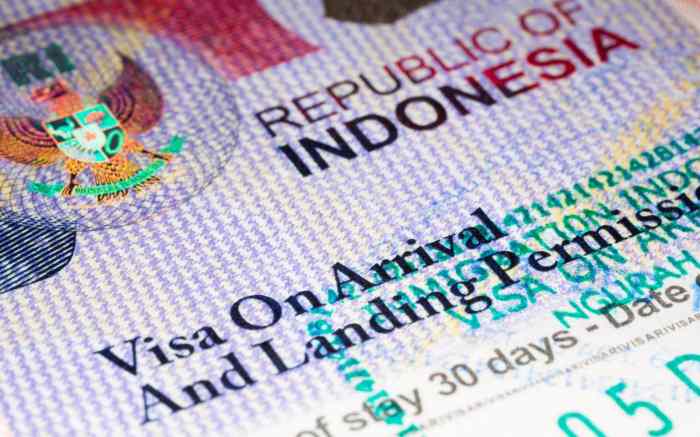
Navigating the Maldives’ visa system can be straightforward, but understanding the associated costs is crucial. This section delves into the various visa fees, accepted payment methods, and potential additional expenses related to visa processing. Knowing these details upfront helps travelers budget effectively for their trip.
Visa Fee Breakdown
Visa fees vary significantly depending on the type of visa and the duration of stay. This section provides a clear breakdown of the fees for common visa types. Precise figures are subject to change; therefore, it is essential to consult official sources for the most up-to-date information.
Planning a trip to the Maldives? Visa requirements are pretty straightforward, generally allowing visa-free entry for many nationalities for a set period. However, if you’re dreaming of exploring the charming cobblestone streets and historic castles of Germany, you’ll likely need to research the best places to visit in Germany before you go. best places to visit in germany offers some excellent options for planning your itinerary.
Regardless of your destination, always double-check the latest visa requirements before booking your trip to avoid any surprises at the airport.
- Tourist Visa: The standard tourist visa, typically granted for short stays, has a specific fee. This fee is usually calculated based on the duration of the stay. For example, a 30-day tourist visa might cost USD 50, while a 90-day visa might be around USD 100.
- Business Visa: Business visas, intended for professionals visiting for work-related activities, usually involve higher fees than tourist visas, reflecting the more extended stay and the associated administrative processes. These fees are often adjusted based on the duration of the stay and specific circumstances.
- Transit Visa: Transit visas are designed for travelers passing through the Maldives en route to another destination. Fees for transit visas are typically lower than tourist visas, reflecting the shorter expected duration of stay.
- Other Visas: Other visa types, such as student visas or work visas, have their own distinct fee structures. These fees can vary considerably, depending on the specific visa category and duration of stay.
Payment Methods
The Maldives typically accepts various payment methods for visa applications. Understanding these options is important for travelers planning their trip. It’s also important to note that some options might not be available through all channels.
- Credit Cards: Major credit cards are widely accepted for visa application fees, offering convenience for many travelers.
- Debit Cards: Some establishments might accept debit cards, offering an alternative payment method. The availability of debit card payments can vary depending on the application channel.
- Cash: While less common than other options, some local establishments might accept cash payments for visa fees. However, this practice is less common in official visa application centers.
- Online Payment Platforms: Some official e-visa portals might accept various online payment platforms. It’s important to verify payment options during the application process.
Additional Costs
Besides the visa fees, additional expenses may be incurred during the visa application process. It is essential to be aware of these potential costs to budget effectively.
- Service Charges: Some visa processing agents or authorized service providers may charge service fees for their assistance in processing the application. These fees are typically disclosed in advance.
- Courier Fees: If applying for a visa through a courier service, there may be courier fees involved, particularly if documents are submitted via mail. It’s recommended to inquire about these charges beforehand.
- Consular Fees: In some instances, there might be additional consular fees associated with visa processing. These charges are typically distinct from the main visa fees.
Visa Fees Comparison
Comparing visa fees across different visa types and application channels is crucial for informed decision-making. This comparison helps travelers optimize their expenses.
| Visa Type | Application Channel | Estimated Fee (USD) |
|---|---|---|
| Tourist Visa (30 days) | Online Portal | 50 |
| Tourist Visa (30 days) | Embassy | 60 |
| Business Visa (60 days) | Online Portal | 120 |
| Business Visa (60 days) | Embassy | 150 |
Visa Validity and Extensions
Planning a trip to the Maldives? Understanding visa validity and extension procedures is crucial for a smooth and worry-free vacation. This section details the typical duration of different visa types, the process for extending a visa if needed, and the implications of exceeding your visa validity.
Visa Validity Periods
Visa validity periods vary depending on the type of visa granted. Tourist visas, for example, often have a specific duration, typically ranging from 30 to 90 days. Business visas, on the other hand, might have a different timeframe tailored to the length of the business activity. It’s vital to review the specific terms of your visa upon arrival to ensure compliance with the regulations.
These timeframes are often Artikeld on the visa itself or on the Maldives immigration website.
Visa Extension Procedures
Applying for a visa extension is possible in certain situations, but it’s not guaranteed. The process usually requires a formal application to the relevant immigration authorities in the Maldives. Specific requirements and fees vary, so it’s essential to contact the immigration office directly for detailed information. Pre-arrival inquiries can often provide clarity on the extension process and necessary documents.
Consequences of Exceeding Visa Validity, Visa requirements for maldives
Failure to adhere to the visa validity period can lead to penalties. This could include fines, restrictions on movement, or even deportation. It’s essential to stay within the permitted timeframe to avoid any legal issues. Careful record-keeping and understanding of the stipulated timeframes can help to mitigate any potential complications.
Visa Extension Process Overview
| Step | Description | Required Documents | Fees |
|---|---|---|---|
| 1. Application Submission | Submit the completed application form and supporting documents to the immigration authorities. | Passport, original visa, proof of sufficient funds, letter of explanation for extension, accommodation confirmation (if applicable), etc. | Varying amounts depending on the type of extension and the duration. Check with the Maldives Immigration Office for the most current information. |
| 2. Processing Time | The immigration authorities will review the application and supporting documents. Processing times can vary. | N/A | N/A |
| 3. Decision | The authorities will notify you of the decision regarding the extension request. | N/A | N/A |
| 4. Issuance of Extension | If the extension is approved, the immigration authorities will issue a new visa with the extended validity period. | N/A | N/A |
Entry and Exit Procedures
Stepping onto the pristine shores of the Maldives is an experience in itself. From the moment you arrive at the airport or a picturesque island, the journey through the Maldivian experience begins. Understanding the entry and exit procedures ensures a smooth transition and a memorable stay.
Entry Procedures at Airports and Seaports
The Maldives welcomes visitors at its international airports and seaports with efficient and organized procedures. Upon arrival, you will be greeted by immigration officers who will verify your travel documents. These include your passport, visa (if required), and onward travel itinerary. Airport staff will assist you with the necessary formalities. Seaports offer similar processes, with immigration officers checking documents at the port of entry.
This ensures that visitors comply with the country’s regulations. At both airports and seaports, customs officials will examine your luggage to verify any prohibited or restricted items.
Documents Required for Entry
A valid passport is a fundamental requirement for entry into the Maldives. It must be valid for at least six months beyond your intended stay. In addition to your passport, a visa, if applicable, is necessary. Proof of onward travel arrangements and accommodation details might also be requested. These documents are crucial for facilitating a smooth entry process and ensuring compliance with immigration regulations.
Documents Required for Exit
For departure, your passport is essential. You will need to present it to the immigration officer at the airport or seaport. In some cases, the officer may require confirmation of your onward travel or departure arrangements. Ensure you have all necessary documents to expedite the exit process.
Restrictions and Limitations on Entry and Exit
There are restrictions on entry and exit for certain individuals or groups. These limitations may vary based on the nationality or the specific circumstances of the visitor. Specific restrictions might include entry bans, quarantine requirements, or limitations related to the purpose of travel. Visitors should check for any restrictions or advisories specific to their nationality before travel.
Table of Necessary Documents for Entry and Exit
| Procedure | Documents Required |
|---|---|
| Entry |
|
| Exit |
|
Visa Exemptions and Special Cases
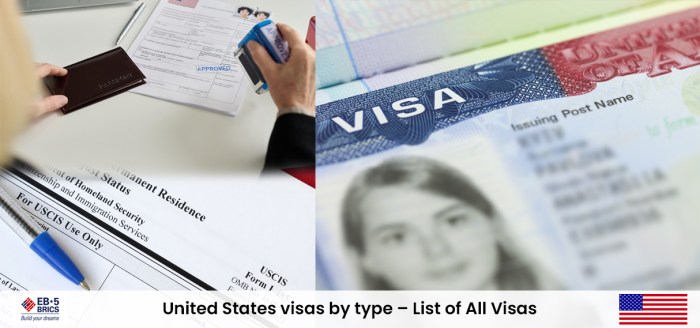
Navigating visa requirements can be tricky, especially when dealing with exceptions and special circumstances. The Maldives, known for its stunning beauty, has a system of visa exemptions for certain nationalities and procedures for those needing special consideration. This section details those exemptions and procedures to help you understand your visa needs.
Nationalities Exempt from Visa Requirements
Many countries enjoy visa-free entry to the Maldives. This streamlined process saves time and effort for travelers. The specific nationalities and duration of stay vary. Understanding these exemptions can help you plan your trip effectively.
- Citizens of several countries are eligible for visa-free entry for a specific period, often ranging from 30 to 90 days. This period is contingent on the specific nationality and the terms of the agreement between the Maldives and that country.
Criteria for Visa Exemptions
The criteria for visa-free entry to the Maldives are established by the Maldivian government and are often based on bilateral agreements. These agreements dictate the duration of stay allowed for each nationality. These exemptions are often reviewed and updated.
- The duration of visa-free stay is often tied to the nationality of the visitor and the terms of the agreement between the Maldives and the visitor’s home country.
- A visitor’s passport must be valid for at least six months beyond the intended stay in the Maldives.
Special Considerations for Visa Applications
Certain situations, like medical emergencies, may necessitate special consideration for visa processing. Knowing the procedures for such cases is essential for those facing unexpected circumstances.
- In cases of medical emergencies requiring immediate attention, travelers should contact the Maldivian embassy or consulate in their home country for guidance on the specific procedures to expedite the visa process.
- Documentation supporting the medical emergency, such as a doctor’s note or referral, will be crucial in demonstrating the urgency of the situation.
- If a traveler needs a visa extension due to unforeseen circumstances, they should apply through the official channels, providing detailed documentation to support their request. This will be evaluated on a case-by-case basis.
List of Nationalities Exempt from Visa Requirements
This list is not exhaustive and is subject to change. It’s always best to verify the most up-to-date information directly with the Maldivian embassy or consulate.
Planning a trip to the Maldives? Visa requirements are generally straightforward, but it’s always good to double-check the latest rules. Knowing that, I’ve recently been fascinated by the Indianapolis Prize Project Seahorse – a truly incredible initiative. Regardless of your travel plans, the Maldives offers stunning beaches and crystal-clear waters, making it well worth researching the visa requirements before booking your trip.
- Citizens of many countries in the European Union, including France, Germany, Italy, and the UK, typically have visa-free entry for tourism purposes.
- Citizens of several Asian countries, such as Singapore, South Korea, and Japan, often benefit from visa-free entry.
- Citizens of some North American countries, such as the USA and Canada, often enjoy visa-free entry.
- Citizens of some South American countries, including Brazil and Argentina, may also have visa-free entry, depending on the terms of the agreement.
Frequently Asked Questions (FAQ): Visa Requirements For Maldives
Navigating visa requirements can be confusing, especially for first-time travelers. This FAQ section aims to address common questions about Maldives visa procedures, ensuring a smoother experience for your trip planning. Clear answers to your queries will help you prepare properly and avoid potential issues at the airport.
Visa Application Process
Understanding the visa application process is crucial for a seamless trip. The process involves several steps, and knowing these steps will save you time and frustration. Careful documentation and adherence to the Artikeld procedures are essential to a successful application.
| Question | Answer |
|---|---|
| What are the necessary documents required for a visa application? | The required documents vary based on your nationality and the type of visa you are applying for. Common documents include a valid passport, proof of accommodation, round-trip flight tickets, and proof of sufficient funds. Always double-check the specific requirements on the Maldives immigration website for the most up-to-date information. |
| How long does the visa application process typically take? | Visa processing times depend on several factors, including the processing center, the type of visa, and the volume of applications. Generally, applications are processed within a few business days to a few weeks. It’s highly recommended to submit your application well in advance of your travel dates to avoid delays. |
| Can I apply for a visa upon arrival in the Maldives? | Visa on arrival is available for certain nationalities. However, this facility may not be available for all nationalities. Always check the most recent guidelines from the Maldives immigration website to confirm the eligibility for visa on arrival. |
Visa Validity and Extensions
Understanding the duration of your visa and options for extensions is vital. This information helps you plan your stay in the Maldives effectively.
| Question | Answer |
|---|---|
| How long is a typical tourist visa valid for? | The validity period of a tourist visa typically ranges from 30 to 90 days, depending on the nationality of the applicant. Refer to the specific guidelines on the Maldives immigration website for the exact validity period for your nationality. |
| What are the procedures for extending a visa? | Visa extensions are possible in specific circumstances. The procedures for extending a visa may involve applying to the relevant authorities in the Maldives, providing supporting documentation, and paying any applicable fees. The Maldives immigration website offers detailed information on the extension process. |
Visa Exemptions and Special Cases
Knowing about visa exemptions and special cases is essential for streamlining your travel arrangements.
| Question | Answer |
|---|---|
| Which nationalities are exempt from the visa requirement? | Citizens of certain countries may be exempt from the visa requirement for the Maldives. This exemption is usually based on the length of stay and the purpose of the visit. The Maldives immigration website provides a comprehensive list of nationalities with visa exemption details. |
| What are the special considerations for business or work-related visits? | Business or work-related visits often require specific visa types. The requirements for business visas may vary based on the nature of the business activity and the duration of the visit. Detailed information on business visa requirements is available on the Maldives immigration website. |
Important Considerations
Navigating the Maldives visa application process can be straightforward, but understanding potential pitfalls and proactively addressing them can save you time and stress. This section highlights crucial aspects to consider, from common application challenges to ensuring your application is as strong as possible. Thorough preparation and attention to detail are key to a successful and hassle-free experience.
Potential Application Challenges
Several factors can influence the outcome of your visa application. These include incomplete or inaccurate documentation, discrepancies in information provided, or unforeseen delays within the processing system. A lack of clear communication or a misunderstanding of specific requirements can also complicate the application process. For example, a recent travel advisory or policy change in the Maldives might affect the application.
Understanding the possible roadblocks can help you anticipate potential issues and plan accordingly.
Tips for a Smooth Application Process
A well-organized approach significantly enhances your chances of a smooth application process. Begin by thoroughly researching the specific requirements for your intended travel dates and purpose. Utilize official government websites and consult embassy or consulate resources for the most up-to-date information. Double-checking the validity of your passport and other required documents beforehand can prevent delays.
Importance of Accurate Information
Accuracy is paramount during the visa application process. Providing false or misleading information can lead to the rejection of your application or even legal repercussions. Consistent information across all documents submitted is essential. Carefully review all application forms, ensuring all details are accurate and match the information on your supporting documents. A simple typo or error can have serious consequences.
Essential Tips and Considerations for a Successful Application
- Thorough Research: Carefully review the specific requirements for your travel dates and purpose. Utilize official government websites and embassy/consulate resources.
- Accurate Documentation: Ensure all documents are complete, accurate, and in the required format. Check validity dates for your passport and other required documents.
- Clear Communication: Maintain clear communication with the embassy or consulate throughout the application process. Promptly address any questions or requests for further information.
- Time Management: Allow ample time for the visa application process. Visa processing times can vary, and unforeseen circumstances may arise.
- Verification of Information: Cross-reference all information provided in the application forms with supporting documents. Ensure consistency in all submitted details.
- Contact the Embassy/Consulate: If you have any questions or concerns, contact the relevant embassy or consulate for clarification.
- Professional Guidance: Consider consulting a travel agent or immigration lawyer if you require assistance with complex visa requirements.
Illustrative Scenarios
Navigating the Maldives visa process can feel complex, but understanding the different scenarios simplifies the journey. This section presents real-world examples of visa applications, detailing the specific requirements and procedures involved. This will help you tailor your application to your unique situation.
Tourist Visa
A tourist visa is the most common type, allowing visitors to explore the stunning Maldivian islands and experience their rich culture. This visa is typically granted for a short duration, perfect for vacation trips. The application process generally involves submitting an application form, passport copies, proof of travel insurance, and a confirmed return flight ticket. Specific requirements for the duration of stay will be detailed on the application form.
For example, a tourist visa for 30 days may require different documents compared to a 15-day visa.
Business Visa
A business visa is designed for individuals travelling to the Maldives for professional purposes. This might include attending conferences, meetings, or engaging in business transactions. The requirements are more stringent than a tourist visa, often needing a letter of invitation from a Maldivian company, proof of the business purpose, and a confirmed itinerary. For example, a company holding a meeting with a Maldivian business partner would need to furnish details of the event, attendees, and the agenda.
Transit Visa
A transit visa allows travelers to pass through the Maldives en route to another destination. It is granted for a limited period, usually sufficient for a layover. Requirements typically include a confirmed onward ticket, proof of onward travel, and visa for the destination country. For example, a traveler flying from Europe to Asia with a layover in Male International Airport would need to apply for a transit visa.
Comparison of Visa Scenarios
| Visa Type | Purpose | Required Documents | Typical Duration |
|---|---|---|---|
| Tourist Visa | Leisure travel | Passport, flight tickets, proof of accommodation, travel insurance | Usually 30 days |
| Business Visa | Professional activities | Passport, flight tickets, letter of invitation, proof of business purpose, itinerary | Variable, often linked to the duration of the business activities |
| Transit Visa | Layover | Passport, onward ticket, visa for destination country | Limited to the layover time |
The table above summarizes the key differences between these visa scenarios. Note that specific requirements and durations can vary depending on individual circumstances and the policies in place.
Epilogue
In conclusion, obtaining a Maldives visa involves careful preparation and understanding the specific requirements. This guide has provided a comprehensive overview of the process, from initial eligibility to final entry procedures. By understanding the nuances of different visa types, necessary documents, and application channels, you can confidently navigate the process and ensure a smooth travel experience. Remember to carefully review the information and consult official sources for the most up-to-date details.
